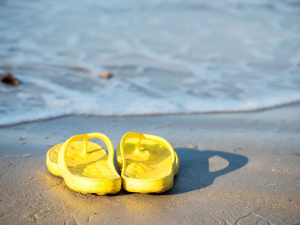Growers praise response to second fruit fly discovery
The quick response to the discovery of another fruit fly in Auckland is being praised by fruit and vegetable growers.
 International travellers to New Zealand are being thanked for their efforts in helping to protect New Zealand's primary sector.
International travellers to New Zealand are being thanked for their efforts in helping to protect New Zealand's primary sector.
Biosecurity New Zealand is thanking international travellers who arrived during the peak Christmas and New Year period for their efforts in helping to protect New Zealand’s $57 billion primary sector export industry.
Northern regional commissioner Mike Inglis says the vast majority of people passing through biosecurity checks are doing the right thing, adding that it is good to see international passengers doing all they can to help keep New Zealand free of pests and diseases.
In December, Biosecurity New Zealand staff screened 600,463 arriving air passengers, an increase of almost 100,000 on the same period last year.
“While we still expect to see high volumes of international arrivals through to the end of January, we’ve already seen some of the highest traveller numbers in almost three years, and our frontline teams were ready for the increased number of travellers,” Inglis says.
“Our staff worked hard to deliver the best possible travel experience for the many thousands of people travelling to New Zealand for the summer holiday period,” he adds. “They’ve done a fantastic job to date and we thank them for their efforts.”
“The improvements we’ve put in place in the last few months meant we were able to keep passengers moving through biosecurity checks.”
Biosecurity New Zealand recently introduced express lanes for low-risk passengers, additional detector dog handlers and their dogs, more quarantine officers in Auckland, and new biosecurity hosts to help passengers navigate the biosecurity system.
“Our hosts have been a welcome addition during the busy season – greeting arriving passengers and ensuring they know how to navigate the biosecurity system and what to expect when they reach our officers,” Inglis says.
“The hosts, along with other processing initiatives, have helped to keep the average processing time for arriving passengers passing through biosecurity at Auckland International Airport at just under eight minutes during December.”
During December, Biosecurity New Zealand officers issued 883 infringement notices to passengers who failed to declare a risk item such as fresh produce and plant products, honey, meat and other animal products.
“So while we want to ensure a smooth and efficient experience for passengers, we are maintaining our strong biosecurity practices.”
Exotic fruit flies and the brown marmorated stink bug continue to be a focus for quarantine officers this summer, along with other pests and diseases that could devastate our economy and environment.
Passengers can do several things to help them be checked efficiently by our biosecurity staff on arrival, including:
An independent report, prepared for Alliance farmer shareholders is backing the proposed $250 million joint venture investment by Irish company Dawn Meats Group.
Whangarei field service technician, Bryce Dickson has cemented his place in John Deere’s history, becoming the first ever person to win an award for the third time at the annual Australian and New Zealand Technician of the Year Awards, announced at a gala dinner in Brisbane last night.
NZPork has appointed Auckland-based Paul Bucknell as its new chair.
The Government claims to have delivered on its election promise to protect productive farmland from emissions trading scheme (ETS) but red meat farmers aren’t happy.
Foot and Mouth Disease outbreaks could have a detrimental impact on any country's rural sector, as seen in the United Kingdom's 2000 outbreak that saw the compulsory slaughter of over six million animals.
The Ministry for the Environment is joining as a national award sponsor in the Ballance Farm Environment Awards (BFEA from next year).

OPINION: For years, the ironically named Dr Mike Joy has used his position at Victoria University to wage an activist-style…
OPINION: A mate of yours truly has had an absolute gutsful of the activist group SAFE.